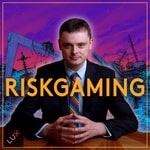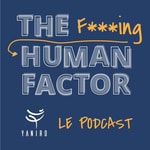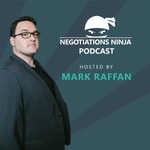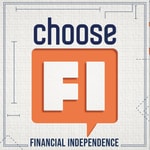Riskgaming – Details, episodes & analysis
Podcast details
Technical and general information from the podcast's RSS feed.

Riskgaming
Lux Capital
Frequency: 1 episode/8d. Total Eps: 145

Recent rankings
Latest chart positions across Apple Podcasts and Spotify rankings.
Apple Podcasts
🇨🇦 Canada - technology
01/04/2025#92🇬🇧 Great Britain - technology
19/11/2024#70🇨🇦 Canada - technology
02/10/2024#95
Spotify
No recent rankings available
Shared links between episodes and podcasts
Links found in episode descriptions and other podcasts that share them.
See all- https://www.spacex.com/
267 shares
- https://www.stanford.edu/
137 shares
- https://huggingface.co/
136 shares
- https://twitter.com/DannyCrichton
85 shares
- https://twitter.com/arbesman
32 shares
- https://twitter.com/wolfejosh
27 shares
- https://medium.com/
379 shares
RSS feed quality and score
Technical evaluation of the podcast's RSS feed quality and structure.
See allScore global : 43%
Publication history
Monthly episode publishing history over the past years.
Josh Wolfe: Our new world order is one where algorithms can wield as much influence as armies
vendredi 27 septembre 2024 • Duration 32:45
Science is the world’s greatest force for progress, but how are the people and institutions that compose this critical activity performing? More specifically, how well is American science competing as more and more countries focus on sci-tech supremacy as a key aspect of building power? The frontiers of technology are determinative of destiny, and so who is pushing those boundaries furthest is crucial to understand.
Those questions and more are what Lux Capital’s co-founder and managing partnerJosh Wolfe and Riskgaming host Danny Crichton talk about. Riffing on Lux’s most recent LP quarterly letter, which emphasized the tension between the nihilist antihero of V for Vendetta against the collaborative community at the heart of scientific progress, the two debate the promise of greater prosperity against the concerning signals of stagnation that are talked about relentlessly in the press.
Among the other topics the two discuss are why scientists continue to compete so ferociously for recognition; the sins of human nature; why the cultures of labs, schools and nations is so vital for progress; recent capital market changes particularly around interest rates; AI’s influence in the sciences; and finally, how VCs will make money in AI — and how they can also lose tens of billions of dollars as valuations evaporate.
The Orthogonal Bet: From Online Communities to In-Person Programming
mercredi 25 septembre 2024 • Duration 36:50
Welcome to The Orthogonal Bet, an ongoing mini-series that explores the unconventional ideas and delightful patterns that shape our world. Hosted by Samuel Arbesman.
In this conversation, he speaks with Omar Rizwan, a programmer currently working on Folk Computer. Omar has a longstanding interest in user interfaces in computing and is now focused on creating physical interfaces that enable computing in a more communal and tangible way—think of moving sheets of paper in the real world and projecting images onto surfaces. Folk Computer is an open-source project that explores a new type of computing in this vein.
Samuel engages with Omar on a range of topics, from Folk Computer and the broader space of user interfaces, to the challenges of building computer systems and R&D organizations. Their conversation covers how Omar thinks about code and artificial intelligence, the world of physical computing, and his childhood experiences with programming, including the significance of meeting another programmer in person for the first time.
Produced by CRG Consulting
Music by George Ko & Suno
The Orthogonal Bet: Understanding Embodied Intelligence
vendredi 23 août 2024 • Duration 44:19
Welcome to The Orthogonal Bet, an ongoing mini-series that explores the unconventional ideas and delightful patterns that shape our world. Hosted by Samuel Arbesman.
In this episode, Sam speaks with Michael Levin, a biologist and the Vannevar Bush Professor at Tufts University. Michael’s work encompasses how information is processed in biology, the development of organismal structures, the field of Artificial Life, and much more.
Sam wanted to talk to Michael because of his pioneering research in these areas. Biology, as Michael’s work reveals, is far more complex than the mechanistic explanations often taught in school. For instance, the process of morphogenesis—how organisms develop their specific forms—challenges our understanding of computation in biology, and Michael is leading the way in this field. He has deeply explored concepts such as the relationship between hardware and software in biological systems, the process of morphogenesis, the idea of polycomputing, and even the notion of cognition in biology.
From his investigations into the regeneration process in planaria—a type of flatworm—to the creation of xenobots, a form of Artificial Life, Michael stands at the forefront of groundbreaking ideas in understanding how biology functions.
Produced by Christopher Gates
Music by George Ko & Suno
Risk, Bias and Decision Making: People never change their minds
samedi 14 mai 2022 • Duration 09:19
Recently at Lux in New York City, Josh Wolfe invited three celebrated decision and risk specialists for a lunch to discuss the latest academic research and empirical insights from the world of psychology and decision sciences. Our lunch included Danny Kahneman, who won the 2002 Nobel Prize in Economics for his work on decision sciences. His book Thinking Fast and Slow has been a major bestseller and summarizes much of his work in the field. We also had Annie Duke, a World Series of Poker champion who researches cognitive psychology at the University of Pennsylvania. Her books How to Decide and Thinking in Bets have also been tremendously influential best sellers, and she is also the co-founder of the Alliance for Decision Education. Also joining us was Michael Mauboussin, the Head of Consilient Research at Counterpoint Global and who has also taught finance for decades at Columbia. His book More Than You Know is similarly a major bestseller.
In part two of our risk, bias and decision making lunch, Danny Kahneman, Annie Duke and Josh Wolfe discuss whether people change their minds, particularly on subjects that matter, why people care about dissonance reduction, and what circumstances lead people to changing their minds at all.
Risk, Bias and Decision Making: Defying the odds
samedi 14 mai 2022 • Duration 21:58
Recently at Lux in New York City, Josh Wolfe invited three celebrated decision and risk specialists for a lunch to discuss the latest academic research and empirical insights from the world of psychology and decision sciences. Our lunch included Danny Kahneman, who won the 2002 Nobel Prize in Economics for his work on decision sciences. His book Thinking Fast and Slow has been a major bestseller and summarizes much of his work in the field. We also had Annie Duke, a World Series of Poker champion who researches cognitive psychology at the University of Pennsylvania. Her books How to Decide and Thinking in Bets have also been tremendously influential best sellers, and she is also the co-founder of the Alliance for Decision Education. Also joining us was Michael Mauboussin, the Head of Consilient Research at Counterpoint Global and who has also taught finance for decades at Columbia. His book More Than You Know is similarly a major bestseller.
In part three of our risk, bias and decision making lunch, Annie Duke, Michael Mauboussin, Danny Kahneman, and Josh Wolfe discuss optimism, base rates, overcoming negative expected values, population versus individual risks, calibrating risk assessments, and infectious amplification of optimism within groups.
Risk, Bias and Decision Making: Hot hands
samedi 14 mai 2022 • Duration 06:49
Recently at Lux in New York City, Josh Wolfe invited three celebrated decision and risk specialists for a lunch to discuss the latest academic research and empirical insights from the world of psychology and decision sciences. Our lunch included Danny Kahneman, who won the 2002 Nobel Prize in Economics for his work on decision sciences. His book Thinking Fast and Slow has been a major bestseller and summarizes much of his work in the field. We also had Annie Duke, a World Series of Poker champion who researches cognitive psychology at the University of Pennsylvania. Her books How to Decide and Thinking in Bets have also been tremendously influential best sellers, and she is also the co-founder of the Alliance for Decision Education. Also joining us was Michael Mauboussin, the Head of Consilient Research at Counterpoint Global and who has also taught finance for decades at Columbia. His book More Than You Know is similarly a major bestseller.
In the fourth and final segment of our risk, bias and decision making lunch, Josh Wolfe, Annie Duke, Danny Kahneman and Michael Mauboussin discuss the phenomenon of the so-called “hot hand,” the idea that a basketball player or an investor can have a streak of good luck that allows them to actually increase the odds of success on their future plays.
Shredding the endowment investing playbook w/Scott Wilson, CIO of Washington University in St. Louis
samedi 7 mai 2022 • Duration 34:03
The future of biotech is moving from bench to beach
samedi 30 avril 2022 • Duration 15:09
While a huge amount of attention is being directed at crypto and media these days, one of the most important wild card investment trends of the 2020s is the coming expansion of biotech. Democratized science tools, improved research networking, and lab automation will revolutionize the practice of biotech, and that means there are huge opportunities for intrepid founders. But there’s a catch: biotech stock performance has been abysmal the past year, and many investors are walking away from the market. Josh Wolfe joins Danny Crichton to talk about what the gyrations in the biotech markets means for startups, some developments around the Human Genome Project, and what strategies existing biotech firms can take to weather the coming consolidation and reinvention of the industry.
Chip demand and the future of the climate with Mythic AI’s Mike Henry
samedi 23 avril 2022 • Duration 17:30
There’s a huge expansion in demand for compute power going on, with AI models, cryptocurrencies, autonomous vehicles and our social media algorithms all guzzling more chip cycles than ever before. But we’re also in the midst of a climate emergency, and chips are a major cause of energy demand. How do we reconcile the two? Joining me to talk about this as well as the future of the semiconductor industry, the CHIPS act, and other national industrial policies is Lux’s Shahin Farshchi and Mythic AI CEO and founder Mike Henry.
Redlines for diplomacy and business with former USSOCOM commander Tony “T2” Thomas
Season 1 · Episode 6
samedi 16 avril 2022 • Duration 14:34
“Redlines” in war are meant to be objective and unambiguous tests for a country to respond to another nation’s action. If one country uses chemical weapons in a conflict, that might violate the redline of another country and therefore force it to conduct military operations in response to reinforce the international laws and norms against the use of such weapons. Redlines though are often ambiguous, used poorly, and their deterrence effect is often diminished by a lack of credibility. How should leaders — from politicians to entrepreneurs — think about redlines? To answer that, host Danny Crichton was joined by Josh Wolfe and General Tony “T2” Thomas, the 11th Commander of U.S. Special Operations Command (USSOCOM) and venture partner at Lux Capital, to talk all things redlines from a hotel lobby in sunny Miami.









